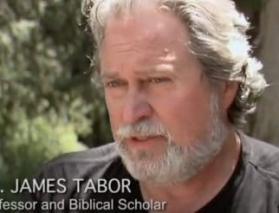A new debate is heating up among Trinitarian Christians concerning the subordination of the Son, Jesus Christ, to God the Father and whether or not there is a similar relationship between men and women as taught in the Bible. Egalitarians believe the Bible teaches an equality between men and women regarding human rights whereas Complementarians believe men have a superior function to women in certain areas of life and thus do not believe that women have all the same rights as men do. This debate has occurred recently among especially Evangelical Christians in which some Complementarian scholars among them have connected it to the traditional doctrine of the Trinity. They say the Son is subordinate to the Father as the wife is to be subordinate to her husband. The Egalitarians say this heretical teaching is a disavowal of the essential equality of the Son and the Father. Some of these Egalitarian scholars say this teaching makes such Complementarians non-Christians.
I’m not going to discuss here the issue about the relationship of men and women as taught in the Bible. For me, this debate that brings in the Trinity, actually the identity of the Father and the Son, is an example of the complicated, theological mess that Christians can get into for believing in the unbiblical idea that God is a Triune being consisting of three co-equal and co-eternal persons: Father, Son, and Spirit. Yes, the Bible tells us of “God the Father” because Jesus called the “one God” his “Father,” Jesus Christ who is called “the Son of God,” and the “Holy Spirit” (which does not have the article in the Greek New Testament), which is “the Spirit of God.” But none of this requires that “the Spirit of God” must be an actual person equal in personhood to that of either the Father or the Son, Jesus Christ. Rather, the Holy Spirit is the spirit of the Father (Mt 10.20), with the Father being “the only true God” (Jn 17.3; cf. 5.44). I believe Jesus is a man who did not exist as a person until he was born in Bethlehem (Lk 1.32-35). The Logos taking flesh, as in Jn 1.14, does not require that the Logos was a person.
I believed the doctrine of the Trinity for twenty-two years because, like most Christians, I was taught it by the pastor of my church. I also kept on believing it because that’s what almost all professing Christians believed. Moreover, Christian teachers said if you didn’t believe in this doctrine, you were not a Christian.
But all my Christian friends were no different than I was. We didn’t arrive at this belief because by discovered it the Bible. Nor could we cite scriptures that expressly said “God is three persons” or the alike, let alone that the Father, Son (Jesus Christ), and the Holy Spirit are equal in nature and eternal (referring to both the past and future).
The doctrine of the Trinity, the eternal subordination of the Son, and the eternal generation of the Son were taught by the scholarly leaders of the Catholic Church in the third and fourth centuries. And they declared that people must believe these things or they are not a Christians.
Origen developed eternal generation in the third century. It means that Jesus eternally preexisted as the Logos-Son, yet this Logos-Son was generated by the Father, all of which is surely a contradiction and thus an oxymoron.
At the First Ecumenical Council of the Catholic Church, the Nicene Council in the year 325, it drafted its Nicene Creed which says Jesus is “very God of very God.” This strange expression is a concept borrowed from Greek philosophy. It means Jesus is God in every respect just as much as the Father is God. Thus, the two of them are completely co-equal in nature.
At the Second Ecumenical Council, which was the first council of Constantinople held in the year 381, the Catholic Church developed the doctrine of the Trinity–in which the Father, Son, and Holy Spirit are three co-equal and co-eternal persons, and anyone who does not believe this is not a Christian. Yet the creed they produced, which was a expansion of the Nicene Creed, did not have the word Trinity in it.
The amazing thing about these determinations of the Catholic Church in the fourth century–that Jesus is very God of very God and that God is three Persons–is that previous Christians did not believe that. The apologists–patristic writers of the second and third centuries–declare that Jesus was essentially subordinate to the Father, meaning the Father was greater than Jesus in nature, not just function.
Trinitarians have said the Son of God is only functionally subordinate to the Father. And they argue this does not detract from their ontological equality. But if Trinitarians are right, then those apologists and professing Christians of that time were not Christians at all. That is ridiculous! Amazingly, the Three Cappadocian Fathers, who developed the doctrine of the Trinity in the 370s, did not address this in their writings. And I don’t think the Roman Catholic Church has sufficiently done so. It merely says if you know of the doctrine of the Trinity and reject it, you are not Christian.
Consider these teachings by the leading apologist church fathers as stated in my book, The Restitution of Jesus Christ, with its references deleted here:
- Justin Martyr (second century): He likewise clings solidly to an essential subordinationism in his Apology by explaining concerning Jesus Christ that Christians are “holding Him in second place,” after “the true God Himself … we give to a crucified man a place second to the unchangeable and eternal God.” Justin further explains of Christ, “the first power after God the Father and Lord of all is the Word, who is also the Son.”
- Irenaeus in his book, Against Heresies, deemed the Father superior to the Son in knowledge and dignity. He often quoted Mt 24.36/Mk 13.32 and Jn 14.28 for support. He concluded regarding the Father, “God holds the supremacy over all things,” thus over Christ.
- Tertullian admitted concerning Praxeas and other monarchians, “they accuse us of preaching two and three gods while they claim that they are worshippers of one God.” Tertullian, however, opposed later orthodoxy by teaching that prior to creation God was alone, but not without His impersonal Reason indwelling Him. Tertullian believed that the Logos was the later expression of Reason, which was God’s own thought. He concluded that God only became the Father just prior to creation, when the Logos proceeded forth by generation to become God’s deputy agent in creation as well as His Son. Tertullian therefore asserted that God “could not have been a Father before the Son … [and] there was a time when there was no Son.” So, Tertullian, as Arius later, did not subscribe to what later orthodoxy would designate as “the eternality” of the Son.
And consider the following New Testament texts that I think clearly show Jesus was essentially subordinate to God the Father, so that Jesus could not have been equal to God in divinity:
- When Jesus healed a paralytic, Jews accused him of “calling God his own Father, thereby making himself equal to God. Jesus said to them, ‘Very truly I tell you, the Son can do nothing on his own. . . . I can do nothing on my own'” (John 5.19, 30)
- Jesus–“the Father is greater than I” (John 14.28).
- Paul–“Christ belongs to God” (1 Corinthians 3.23).
- Paul–“Christ is the head of every man, and the husband is the head of his wife, and God is the head of Christ” (1 Corinthians 11.3).
- Paul said about God the Father–“he who is the blessed and only Sovereign” (1 Timothy 6.15).
The biblical evidence is overwhelming–Jesus is essentially subordinate to the Father, who is the only true God. Thus, Jesus cannot be God, which would make two Gods.
See also “Is Jesus God or Subordinate to God?”
…………….
To see a list of titles of 130+ posts (2-3 pages) that are about Jesus not being God in the Bible, with a few about God not being a Trinity, at Kermit Zarley Blog click “Chistology” in the header bar. Most are condensations of my book, The Restitution of Jesus Christ. See my website servetustheevangelical.com, which is all about this book, with reviews, etc. Learn about my books and purchase them at kermitzarley.com. I was a Trinitarian for 22 years before reading myself out of it in the Bible.














